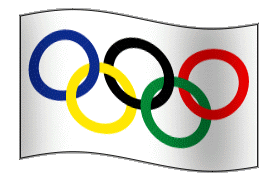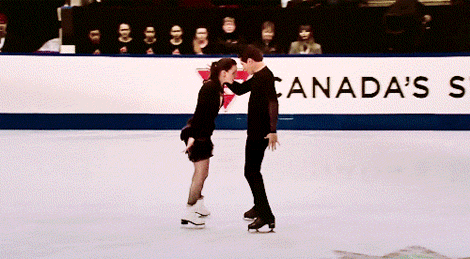So...it's over.
Ed Camp London has come and gone. I'm feeling like Christmas Day at about 9 pm. All the excitement is over, the presents are opened, the huge meal it took days to prepare has been devoured, the guests have all gone home and I'm feeling very full (but instead of a full tummy, it's my brain that is experiencing the turkey sweats) and a little sad that it's all over. Time to chill, review the day, and perhaps squeak in a nap before supper (I told you, my brain is tired!).If you have never been to an Ed Camp before (like me!), it is a workshop/conference with no set agenda. As you arrive, you fill out sticky notes of things you would like to learn about, or would be willing to share about. The organizers then start to build sessions around common themes. Nobody actually presents. You gather and discuss these topics. You share ideas. Have a question? Someone in the room may be able to answer it - or may ask you another question. It's some pretty rich discussion and an amazing environment to learn in. This may have been my first EdCamp - but it sure won't be my last!
The Day began with some Ignite talks. That's where the speakers get a set time and a slide show that advances every few seconds automatically, to share a message with the attendees. Jay Dubois gave his very first Ignite about trying new things - encouraging us to write in pen so we can't change our mind and erase our good intentions. Jen Giffen spoke about moving away from the game of school and encouraging our Students to create, not imitate. Melanie Mulcaster talked about the vision behind great makerspaces. Derek Tangredi and his former student, Valentina, talked about teachers making a difference by the headlines that don't happen, the importance of empathy, and that students don't need Teachers to be perfect, they just need us to care. David Carruthers reminded us not to tone it down - not to let the naysayers dim our light. I love watching Ignite talks. They don't just fire you up for the rest of the day - they leave you with lots to think about going forward.
I was a part of a small but might session on Coding with Derek Tangredi, his former student Valentina, Doug Peterson, Luigi @TeachCodeCreate (sorry Luigi, I forget your last name!), Melanie Mulcaster and a few others and was blown away by some of the new things discussed. I picked up some new coding sites too - I can't wait to try Codemoji.com with my students! Doug brought up an important point as well - that coding is not always about training coders - that it is also about the logic, computational skills and type of thinking that Students are doing when they learn to code. And Luigi - who works for the Boston Celtics by the way - where the heck would I ever meet someone who does what he does and be able to learn some of the amazing applications coding has in the real world, and the way he is able to condense that into some real world applications for students.
Then I went to the makerspace at Sir Arthur Currie PS (and thanks to Principal Sue Bruyns for hosting this event in her amazing new building!) and played with some Ozobots and Blue Bots. Luigi and Melanie were there again - and just listening to how they were working out a lesson using several ozobots and applying it to solving big city traffic issues was like watching master coding teachers at work. And I will also admit - the bots are just fun to play with too.
After lunch I got to spend an hour discussing FlipGrid and Podcasting with a great group of educators, but for me a real highlight was getting to spend the hour just chatting with Jen Giffen about these subjects (I but a lowly apprentice to the great master) - who I am in awe of. We also migrated into the power of Twitter for learning, ideas and your PLN.
My last session was on Global Competencies. I must apologize to my fellow attendies - my cold medication was wearing off and I was going a bit in and out of focus on this one. But it was great to have a Student with us and sharing her insights on empathy and communication.
Another great thing about being a part of Ed Camp (as Dawn Telfer and I discussed) is that there are really only positive, innovative, on the band wagon, driving the train folks in attendance. You would be hard pressed to find a safer environment to get your ed-tech or edu-geek on. Those who would tell you to "dial it down" or "stop making the rest of us look bad" - are not getting up on a Saturday morning for an event like this. And some folks, like Jen Giffen and Doug Peterson had pretty long drives to get here. We were all there because we wanted to be. We all wanted to learn and we all wanted to share. Pretty amazing.
Really, though, I think the real power of EdCamp is the connections you make and the conversations you have. I got to meet Derek Tangredi, Cliff Kraeker, Jay Dubois, Peter McAsh, Andrew Forgrave, Sue Bruyns, Jen Artan, and Diana Hughes, IRL (aka in real life) for the first time. It is always cool to meet the folks you count as part of your PLN, or chat with online. I even recruited a few of these folks for future "I Wish I Knew EDU" podcasts. (You know who you are and thanks for taking the leap and saying yes to podcasting with me! If you are reading this and would like to make that leap - DM me - I'd love to chat with you!). It's also a great place to chat with folks you don't get to see much, but whose input you value greatly. I caught up with Doug Peterson, Melanie Mulcaster, Jen Giffen, Dawn Telfer, David Carruthers, and Heidi Solway, to name a few. I also met a lot fascinating people who I have added to my PLN.
Thanks to the EdCamp London organizers (my apologies if I have missed anyone): Sue Bruyns, David Carruthers, Heidi Solway, Jay Dubois, Dawn Telfer, Diana Hughes. You put a lot of hours into a fantastic event and I thank you. If you were there or have been to EdCamp before, please feel free to share some of your reflections in my comments section below. I'm always interested in what you have to share. But right now, I'm going to try and sneak that 15 minute cat nap in. My brain is Full!







